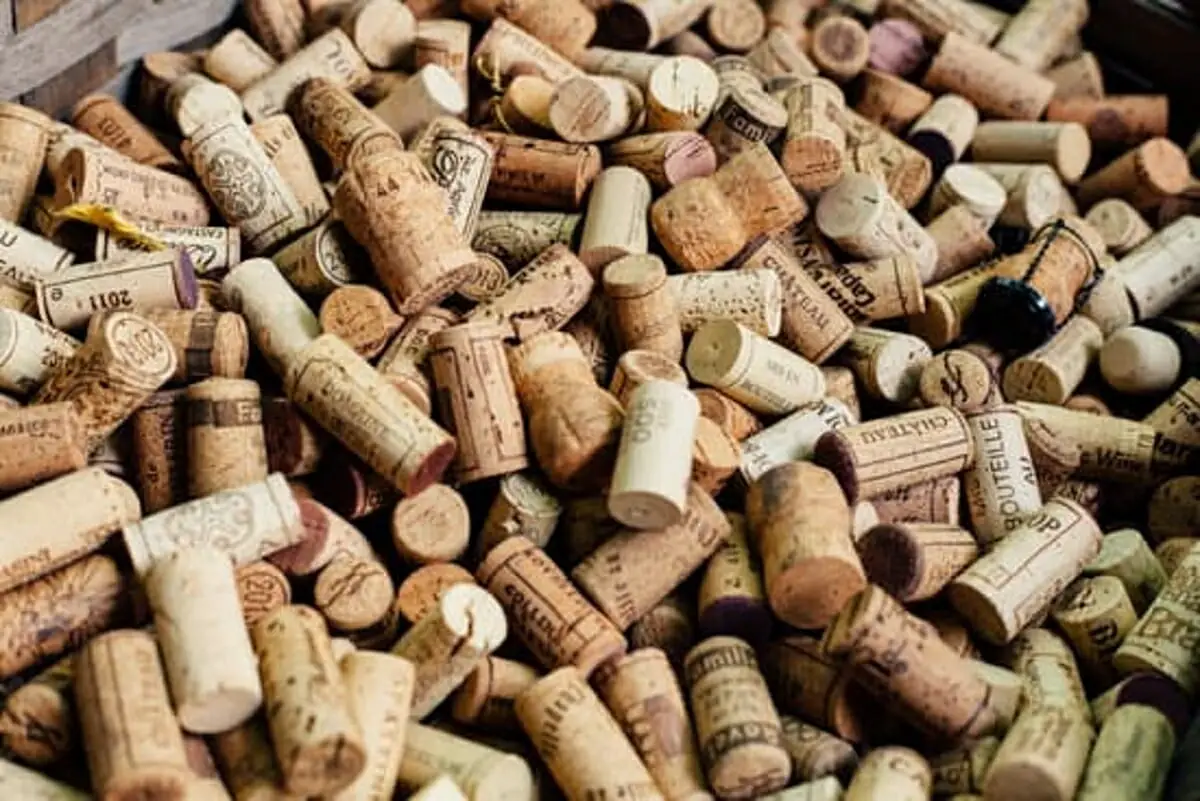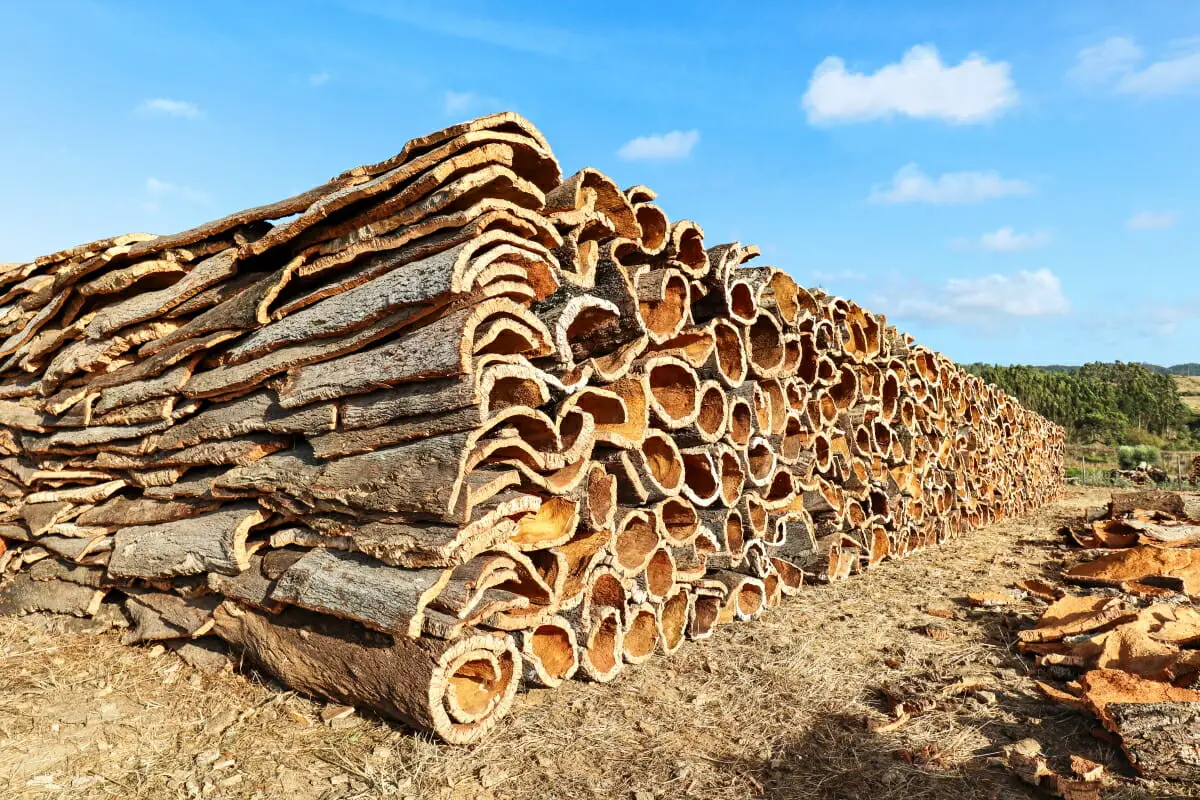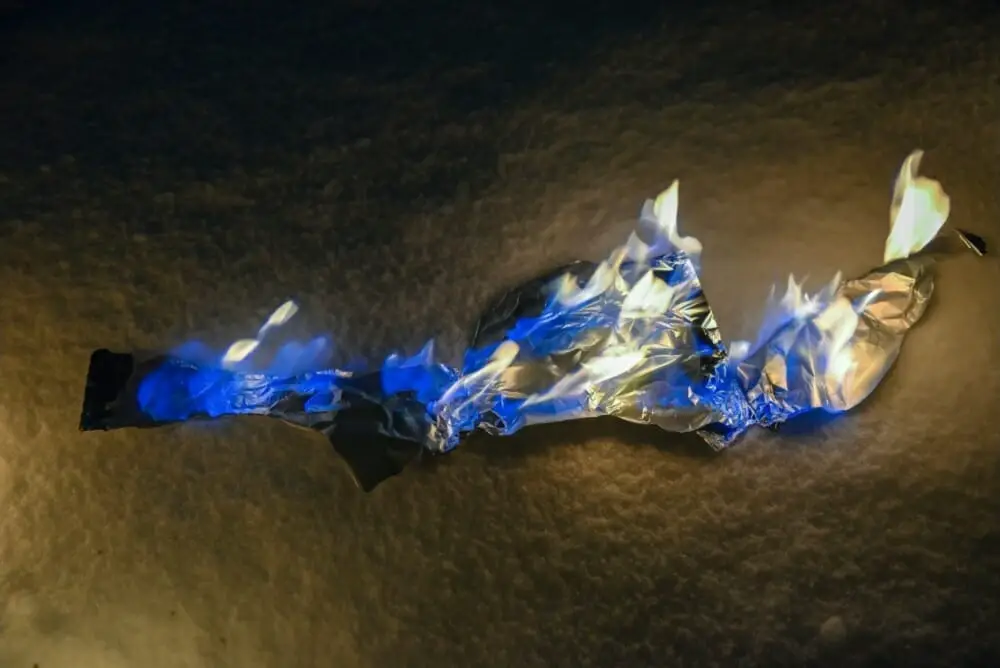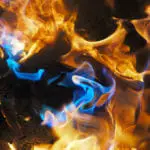Did you know that 80% of the world's cork comes from two countries - Portugal and Spain? (EL) It's probably no coincidence then that Portugal and Spain are neighbors of the top 3 wine producers globally (France, Italy, and Spain) (EL) since cork is used overwhelmingly as a wine bottle stopper.
But while opening a bottle of wine, have you ever wondered if that cork stopper could catch on fire? It looks like wood. And it feels like wood. But is cork flammable? Does cork burn?
The quick answer is no. For the most part. And in this article, you'll find out more about cork, its uses, and why it's not flammable.

What Is Cork?
Cork is a natural and environmentally sustainable material. It is made from the bark of a cork oak (Quercus Suber), a long-lived tree that’s highly regenerative. It can live up to 200 years even though its bark gets stripped every 9 to 13 years on average. Cork is composed primarily of suberin, a waxy hydrophobic (water repellant) substance, and other organic compounds.
Natural cork oak forests are native to southwest Europe and northwest Africa - predominately in Portugal, Spain, Morocco, Algeria, Tunisia, Italy, and France, with almost half of the cork production occurring in Portugal.
When it’s time to harvest, the stripped bark is left to dry in the sun and later boiled to soften it. Finally, the best pieces of cork are punched out of the planks, as they are called, to make high-quality wine corks, and the remainder is used for a variety of other purposes, as discussed below.
What Are The Properties Of Cork?
Cork’s honeycomb cellular structure, where the cells usually have a pentagonal or hexagonal shape, is the key to its unique properties. Each cell is also filled with a gas mixture similar to air, in addition to a waterproof and airtight membrane that is durable and strong. In fact, cork bark is approximately 89% air, so it has a low density, contributing to its ability to recover after being compressed.
Elastic and Resilient
Given the cell structure and the fact it's mostly air, cork is flexible, compressible, and elastic. It will almost always return to its original shape, regardless of the pressure applied, making it perfect for being used as a bottle stopper.
After many years of being compressed in a wine bottle, it will continue to remain elastic and maintain an airtight seal. You've probably experienced this property when you've opened a bottle of wine and the cork immediately expands, making it difficult to get the cork back in the bottle, no matter the age.
Light
Cork's low density and airy nature allow it to float on the surface of water. And because its structure is composed of watertight cell membranes, it won't absorb water and expand or enlarge in humid conditions. So it is the perfect material to be used in fishing bobbers or for other similar uses.
Insulation
Cork is an excellent insulator because of its unique cell structure. The honeycomb design is comprised of many tiny, sealed pockets of gas that act as insulators of sound, heat, electricity, and vibration.
Impermeable
Remember suberin? Cork's natural cell membrane makes it impermeable to liquids and gases due to this mixture of fatty acids and heavy organic alcohol, also preventing it from degrading and rotting as time passes.
Durable
Cork is exceptionally durable, and its friction coefficient is high so that it will survive repeated impacts or abrasions quite well. So it is excellent for use as cork shoe soles or in industrial applications that require high resistance levels.
Hypoallergenic
Cork doesn't absorb dust and is easy to clean, so it's ideal for use as floor and wall coverings, which is great for allergy and asthma sufferers.
What Is Cork Used For?
Cork is a versatile material, and given its many beneficial properties and environmentally friendly nature, its uses are many.
Some examples are wine corks, gaskets, corkboards, acoustic and thermal insulation, bulletin boards, cork flooring, cork wall tiles, fishing floats, buoys, and rod handles, containers, furniture, fire pits, construction materials, musical instruments, sporting goods, fire retardant, and several other cork products.
Cork is also used in numerous industries, including construction, manufacturing, aerospace, pharmaceuticals, automotive, electrical, chemicals, cosmetics, fashion and design, and other industrial applications.

Is Cork Flammable?
Due to its ideal makeup, cork itself is fire resistant, an excellent flame retardant, and doesn't catch fire. But cork dust is highly flammable because, in this case, the cell structure has disintegrated, losing the natural advantages cork enjoys.
Does Cork Burn?
Yes, it burns, but very slowly, and it doesn't cause flames, so it doesn't spread quickly. Also, when burning, the smoke that is released isn't toxic.
FAQ's
At What Temperature Does Cork Burn?
Cork can ignite when it reaches 300 degrees Fahrenheit and can burn without the presence of any other chemical reaction or substances.
Is Cork A Good Insulator Of Heat?
Cork is an excellent heat insulator because of the many tiny cells filled with air within its structure. The air effectively blocks most heat from passing through the cork material.
Can You Use Wine Corks As Kindling?
You can take a bunch of corks, wrap them up in newspaper, and place the cork ball in the bottom of a fire pit. Then add other kindling, like twigs or leaves, on top of the cork ball, and light the newspaper to start the fire. Add additional wood as the flames grow. You could also soak corks in a flammable liquid like lighter fluid or rubbing alcohol to help with starting a fire.
How Long Does A Cork Last?
Due to its many unique natural benefits and qualities, cork can last more than 50 years, which can be seen in its application as a wine cork, with some wines aged in bottles for decades.
Final Thoughts
Is cork flammable and does cork burn are two essential questions to ask when thinking about this unique natural material. And after reading this, you can answer them both!
As you now know, cork is a pretty versatile and awesome material. It's natural, environmentally friendly, water and fire-resistant, and it keeps one of the oldest beverages in human history stopped and ready for consumption!
So the next time you open a bottle of wine, take a closer look at the cork and think about how cool it is before just tossing it in the garbage. And be confident, knowing that nobody will be able to stump you when asking a question about that little cork!








